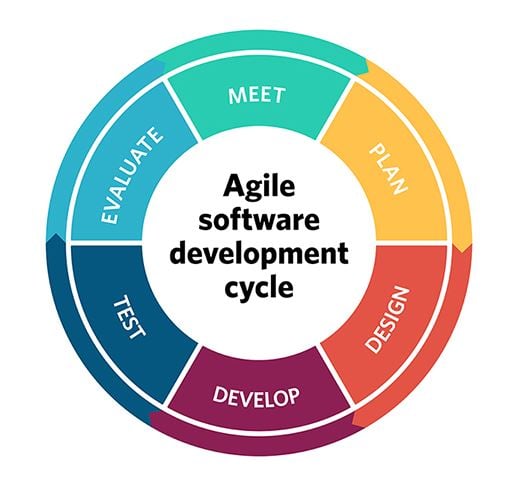In the ever-evolving landscape of software development, agility has become a key driving force behind innovation and success. Agile software development methodologies offer a flexible and iterative approach to building software, enabling teams to adapt to changing requirements, deliver value quickly, and respond to customer feedback effectively. In this article, we’ll delve into the world of agile software development, exploring its principles, practices, and the benefits it offers to development teams and organizations.
Understanding Agile Software Development
At its core, www.softwarechiefs.com/ is a set of principles and values that prioritize collaboration, adaptability, and customer satisfaction. The Agile Manifesto, created in 2001 by a group of software developers, outlines four key values:
- Individuals and interactions over processes and tools
- Working software over comprehensive documentation
- Customer collaboration over contract negotiation
- Responding to change over following a plan
Principles of Agile Software Development
In addition to the Agile Manifesto, agile software development is guided by a set of principles that emphasize:
- Iterative Development: Breaking down the development process into small, manageable increments, or iterations, allows teams to deliver working software quickly and continuously improve based on feedback.
- Collaboration: Encouraging close collaboration between cross-functional teams, including developers, testers, designers, and product owners, fosters shared understanding, transparency, and collective ownership of the product.
- Continuous Delivery: Embracing automation and continuous integration practices enables teams to release software updates frequently, reducing time-to-market and enabling rapid response to changing requirements.
- Adaptability: Embracing change as a natural and inevitable part of the development process empowers teams to be flexible, responsive, and resilient in the face of evolving customer needs and market dynamics.
Practices of Agile Software Development
Agile software development encompasses a variety of practices and frameworks, including:
- Scrum: A popular agile framework that emphasizes iterative development, regular feedback loops, and collaborative decision-making through ceremonies such as sprint planning, daily stand-ups, and sprint reviews.
- Kanban: A visual workflow management tool that helps teams visualize work, limit work in progress, and optimize their processes for continuous improvement.
- Extreme Programming (XP): A set of engineering practices that promote simplicity, feedback, and rapid response to changing requirements through practices such as test-driven development, pair programming, and continuous integration.
- Lean Software Development: Borrowing principles from lean manufacturing, lean software development focuses on eliminating waste, optimizing flow, and delivering value to customers quickly and efficiently.
Benefits of Agile Software Development
Agile software development offers numerous benefits to development teams and organizations, including:
- Faster Time-to-Market: By delivering working software in small increments, agile teams can respond quickly to customer feedback and market changes, reducing time-to-market and increasing competitiveness.
- Improved Quality: Continuous testing, feedback, and collaboration result in higher-quality software that better meets customer needs and expectations.
- Increased Flexibility: Agile methodologies enable teams to adapt to changing requirements, priorities, and market conditions, allowing for greater flexibility and resilience in the face of uncertainty.
- Enhanced Customer Satisfaction: By involving customers in the development process and delivering value incrementally, agile teams can ensure that the final product meets customer needs and delivers tangible benefits.
Conclusion
In conclusion, agile software development has revolutionized the way software is built, enabling teams to deliver value quickly, adapt to change effectively, and innovate with confidence. By embracing agile principles, practices, and frameworks, development teams and organizations can unlock new levels of productivity, collaboration, and success in today’s fast-paced and dynamic digital landscape.

